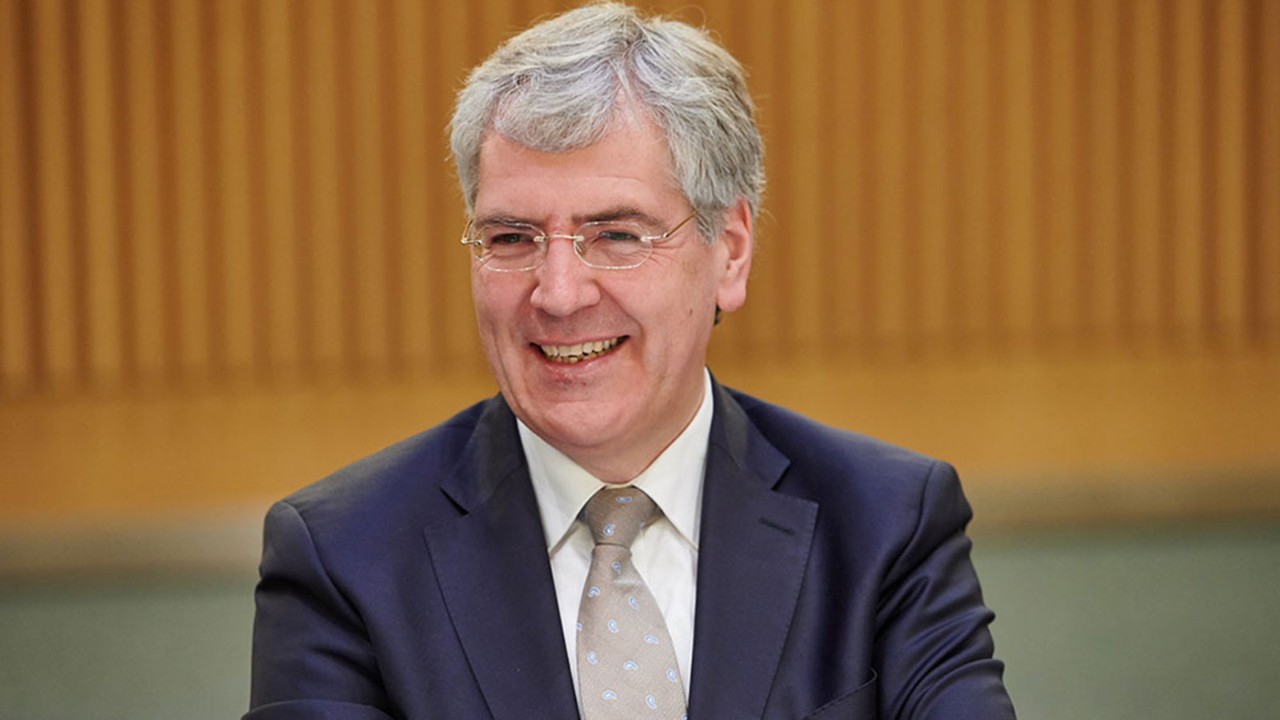
‘A new chair doesn’t mean a new agenda,’ says Andreas Barckow, the new chair of the International Accounting Standards Board (IASB). Taking over from outgoing chair Hans Hoogervorst on 1 July, Barckow begins his term of office at the global standard-setter at a time of significant change in the accounting profession.
With the board already in the process of developing its programme for the next five years, Barckow has no intention of throwing everything out and starting again. His priorities are to maintain continuity while looking to the future.
'Our digital strategy may have been appropriate when it was developed, but now is the time to revisit it'
Clear priorities
‘My first priority is to continue and maintain the successful work of my two predecessors of building trust in financial reporting standards and fostering their consistent application,’ he says. He is referring to Hoogervorst, the Dutch ex-politician, and the pugnacious Scot Sir David Tweedie, who set in train many of today’s accounting standards and the principles that lie behind them. This is, he says, about keeping his ‘clients’ – the preparers and users of financial statements – happy.
His second priority is to shape the existing organisation into one that is, in his words, ‘more agile’. This will entail looking ahead towards emerging issues as well as dealing quickly with pressing needs caused by unexpected circumstances, the pandemic being a classic example.
‘I realise this will be easier said than done because much of the IASB’s work is predetermined by our agenda and the due process that we follow. However, every standard-setter around the world needs to focus on addressing tomorrow’s problems,’ he says. ‘We need to look forward and ask ourselves what will come our way in four to five years so that when it does, we are ready.’ Accounting for cryptocurrencies is an obvious example.
‘Sometimes the IASB’s arguments have fallen butter-side down’
CV
2021
Chair, International Accounting Standards Board
2015
President, Accounting Standards Committee of Germany
2015
Member and then vice chair, European Financial Reporting Advisory Group
2001
Head of IFRS Centre of Excellence, Deloitte (partner from 2008)
2000
Project lead, DZ Bank
Barckow’s third priority inevitably is about how his organisation communicates with its different stakeholders. Having sat on the receiving end of communications from the board, he admits that ‘sometimes our arguments have fallen butter-side down’.
Allied to this is his fourth priority of digital transformation. ‘We need to look at how information is being processed, delivered and consumed today,’ he says. ‘Our strategy may have been completely appropriate when it was developed, but now is the time to revisit it.’
In addition to these four aims, he intends to monitor closely developments in sustainability reporting, noting the role his organisation will play as the trustees of the IFRS Foundation – his bosses – set up the International Sustainability Standards Board.
Technical development
Unlike his immediate predecessor, Barckow has a background and experience that is firmly technical. At university he studied international finance and economics, which he combined to pursue a career in accountancy after gaining a PhD from Paderborn University, Germany; his thesis bore the title: Accounting for derivative financial instruments and hedging strategies – a comparison of the requirements under German GAAP, FAS 133 and IAS 32/39.
While at DZ Bank he ran a project looking at accounting for derivatives in the early 2000s, and subsequently set up the IFRS desk for Deloitte in Germany, a position that led him to become part of the firm’s global IFRS leadership team.
In 2015 he took on the role of president of Germany’s Accounting Standards Committee. In the same year he also became a board member (and subsequently the vice chair) of the European Financial Reporting Advisory Group (EFRAG); he relinquished his EFRAG positions upon his IASB appointment. He is, of course, no stranger to the IASB, having been a member of its Accounting Standards Advisory Forum and Management Commentary Consultative Group.
Sustainability
The IASB is currently consulting on the shape of its future agenda. It published a request for information in March, setting out a series of questions that will help it set its agenda for the next five years from 2022.
This, to a certain extent, will inform Barckow’s future work. However, alongside this consultation, the trustees of the IFRS Foundation (the body that oversees the IASB’s work) is working to create a parallel board to set sustainability reporting standards. This work was referenced in the recent communique of the G7 finance finisters.
Barckow says: ‘The IASB has a financial reporting remit, but if we look at our framework, it says that we should concentrate on financial and other reporting, but without being specific about what “other” means.
‘The IASB’s focus generally is on the financial year and the outlook 12 months ahead, not 30 years ahead. This is why the trustees last year asked whether there was a need to consolidate the myriad of different sustainability frameworks – and if so, whether it was for the IFRS Foundation to take up the challenge. The feedback was overwhelmingly positive.’
Addressing convergence
There is also another challenge on the horizon. The convergence project with the FASB, the US standard-setter, may have come to an end, but there will be legacy issues that still need to be faced.
For instance, there is a strong move in the US to amend the joint standard on business combinations (IFRS 3) so that it reverts back to an amortisation method of accounting for goodwill; the majority of the IASB has so far believed that there is no pervasive evidence of overvaluations under the current system and so no need for change. This will be the subject of a joint meeting between the two boards in July.
But on the wider issue of whether the accounting world could see a return to converged standards between the FASB and the IASB, Barckow says: ‘Never say never.’




